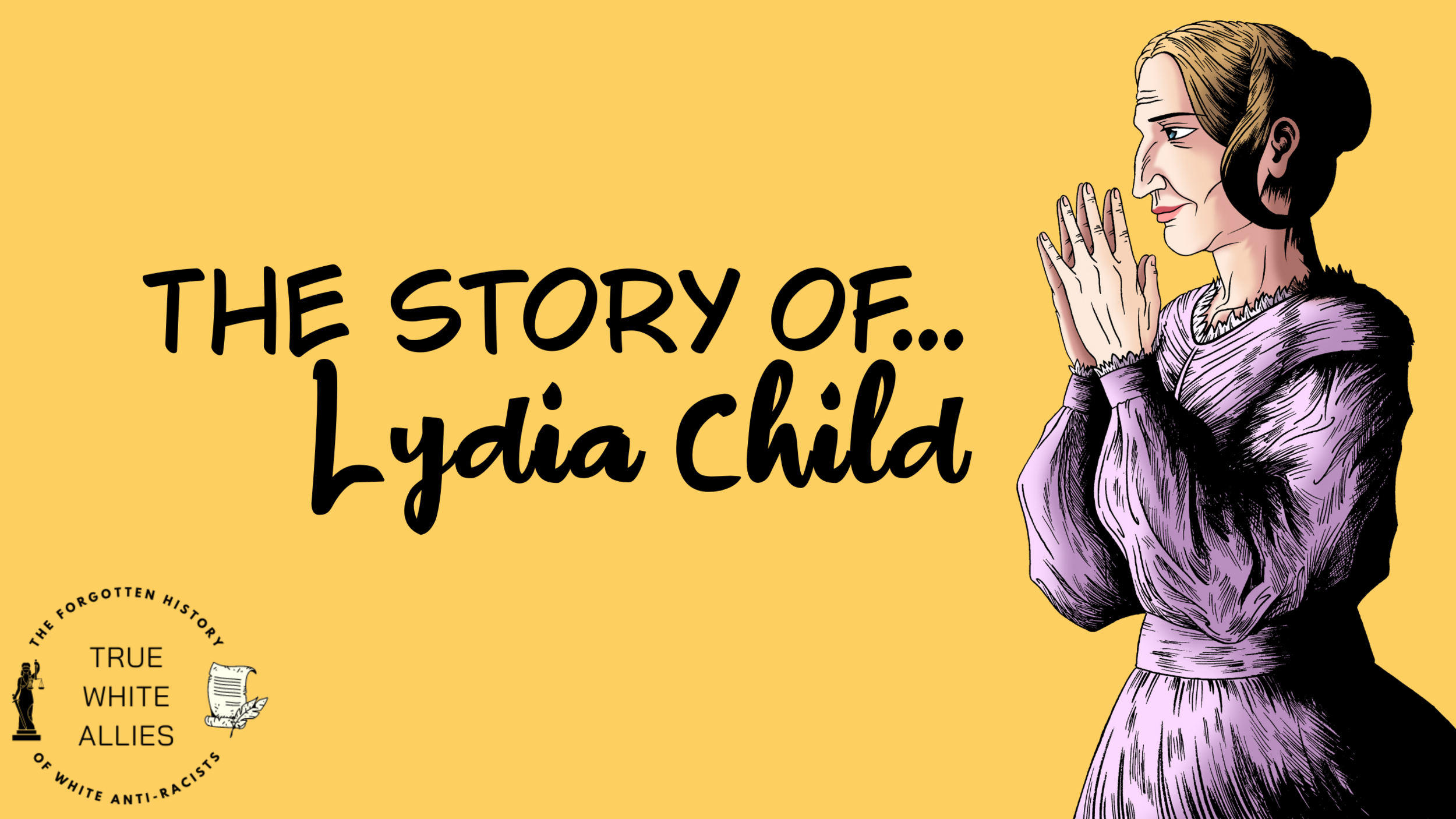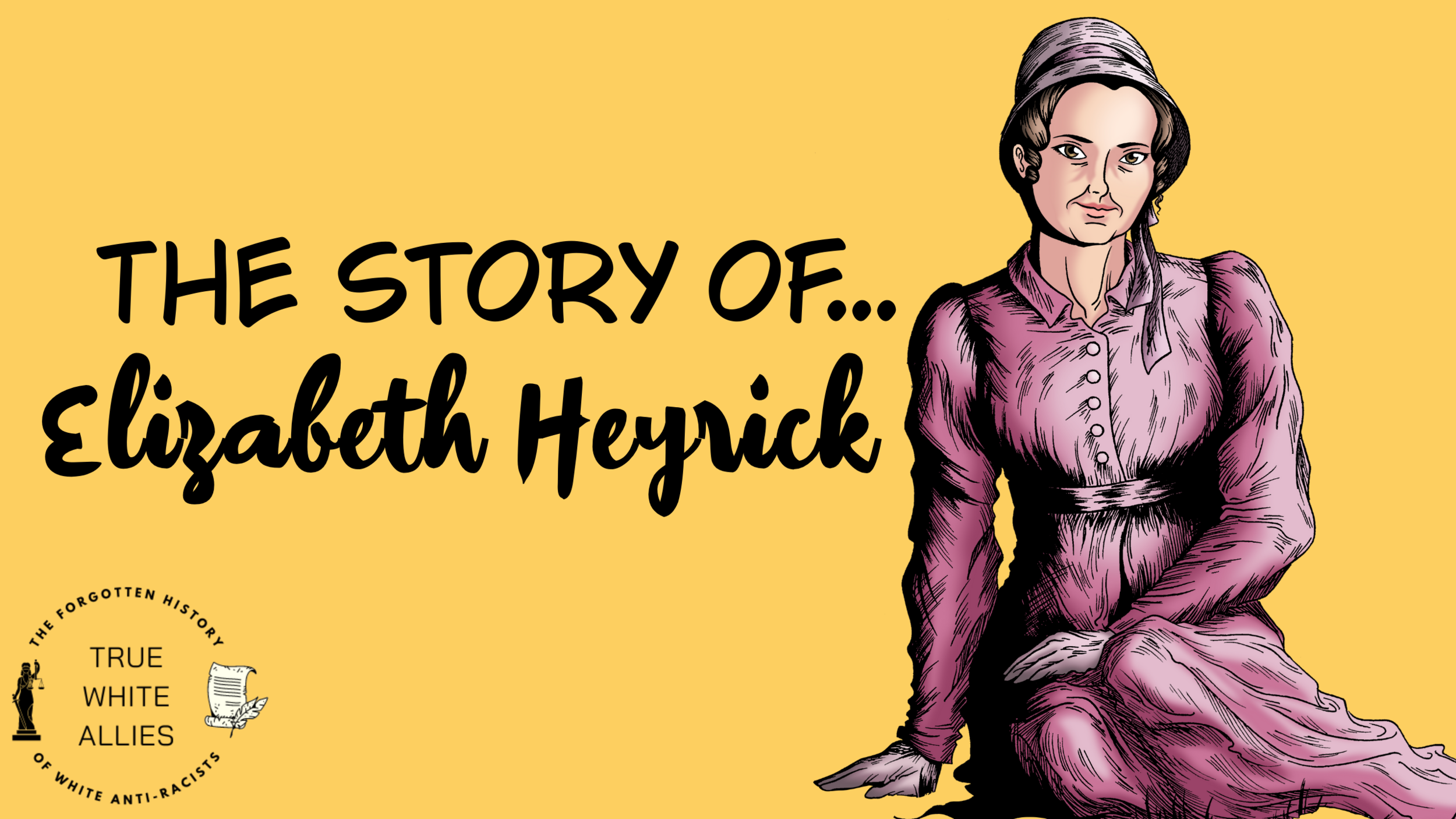The Story of Lydia Child
There are many examples of how to be anti-racist at work – all you need to do is look back, and you will find a surprising number of true white allies in history. Lydia Maria Child is just one example of how to be anti-racist in the workplace.
Lydia Child was an author, teacher, and abolitionist, and she used her writing talents to fight against racial inequality. By learning more about her story and following her lead, you can find ways to be anti-racist in your job.
Who was Lydia Maria Child (and can she teach us how to be a True White Ally?)
Lydia Maria (pronounced Ma-RYE-a) Francis was born in Massachusetts in 1802. This was more than 150 years before interracial marriage was finally made legal across the United States, which didn't happen until 1967!
Her parents and five older siblings were dedicated to her education when she was a young child. Sadly, her mother died when she was 12 years old, so she moved to Maine to live with one of her sisters. While living in Maine, some of her friends were members of the Abenaki and Penobscot Indigenous communities.
Some people use the term Native American or American Indian, while others prefer Indigenous, Aboriginal, or First Nations. It's always a good idea to ask individuals how they like to be identified.
Lydia moved back to Massachusetts when she was 19 and lived with her brother Convers Francis. He was a Unitarian minister, and he encouraged her to continue her education and supported her passion for writing. She lived with him in 1824 when she wrote her first novel, Hobomok, A Tale of Early Times.
Watch the story of Lydia Maria Child
Lydia Maria Child used writing to be a True White Ally.
The book, quite sensual for its time, tells the tale of a wealthy white woman who marries a Native American chief, has a child with him, and then leaves him for another man.
While we might frown on some aspects of this plot today, it was transgressive for the 19th century and a big hit. In 1828 Lydia married her husband, David Lee Child and soon wrote many other successful books. Her works included The Frugal Housewife, which gave tips on saving money and earned her many working-class fans.
However, in 1833, some of Child's fans were shocked and angered when she wrote an anti-racist book. She spoke out against slavery and racial discrimination and decried laws against interracial marriage. An Appeal in Favor of That Class of Americans Called Africans was one of the first books a white woman had ever written about slavery.
Child and her husband were part of a group of anti-slavery advocates led by William Lloyd Garrison - another great abolitionist. They were all examples of allies at work, but this made them unpopular with many members of the public. Child knew her stance could make her a target, so she tried to head this off in her work.
“READER, I beseech you not to throw down this volume as soon as you have glanced at the title.
I am fully aware of the unpopularity of the task I have undertaken, but though I expect ridicule and censure, I cannot fear them. Should it be the means of advancing, even one single hour, the inevitable progress of truth and justice, I would not exchange the consciousness for all Rothchild’s wealth or Sir Walter’s fame.”
Despite her plea to be heard, she was 'cancelled' – people stopped buying her books, and they cancelled subscriptions to her children's magazine. However, that didn't stop her from speaking out about her beliefs.
“My purpose is a simple and honest one. I wish to familiarize the public mind with the idea that people of color are human beings elevated or degraded by the same circumstances that elevate or degrade other men.”
Unlike many other writers of her day, she didn’t try to idealize Black people or make them superhuman – they’re just like everybody else. Sometimes they're exceptional, and sometimes they're basic! Child knew that no one needs to be perfect to deserve respect as a human being.
How was Lydia Marie Child a True White Ally?
Lydia Marie Child was never afraid of hard work and speaking her mind, even when her opinion was unpopular.
In 1841 she became the editor of The National Anti-Slavery Standard, an influential abolitionist newspaper. She soon increased its circulation and wrote a regular column called "Letters from New York." Child continued her work for the rest of her life.
She became friends with the great abolitionist John Brown and asked the Governor of Virginia to visit him while he was in prison for inciting slave revolts. Instead, the Governor attacked her character and leaked their private letters.
She clapped back, writing, "you have threatened to trample on the Constitution and break the Union if a majority of the legal voters in these confederate states dared to elect a President unfavorable to the extension of slavery. Is not such a declaration proof of premeditated treason?"
Lydia Child died in Massachusetts in 1880, a woman of principle to the very end. She refused to be bullied by men in power and used her privilege to fight against injustice.
Quick Takeaways – How to Follow Lydia Maria Child's Example
Use your talents to be anti-racist in the workplace – Lydia Marie Child was a great writer with a passion for fiction. She parlayed her talents into a successful career, speaking out against racism and championing the rights of the poor.
Speak up when you see something wrong – Child could have just enjoyed a comfortable life and revelled in the profits from her novels, but her beliefs were too important. Instead, she risked her reputation to champion an unpopular cause, even when it cost her her livelihood.
Don't cancel people for being progressive – New opinions and beliefs can often seem threatening and scary at first. It can be tempting to ignore progressive people and even boycott their events, music, and writing. However, those people are usually on the cutting edge and the right side of history. Even though people tried to cancel Lydia Marie Child, we now see her as a great example of how to be an ally at work.
Do you want to learn more about how to be anti-racist in the workplace? Click here to learn how to join us in our mission.



